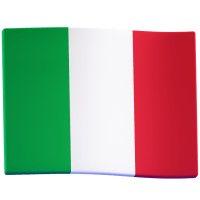Japanese phrases and expressions you can learn today
Start learning the most common Japanese phrases

Top 10 Japanese phrases and sentences you need to know
We have prepared a list of common Japanese expressions that will help you have a basic conversation in Japanese in no time. Let's dig in!
1. おはようございます。 = Good morning.
If you find yourself in Tokyo it is always polite to say “Hi” every morning because Japanese speakers are really sociable. “Good morning” in Japanese is "おはようございます。".
Now enjoy being greeted by a fluent speaker:おはようございます。
2. こんにちは。 = Good afternoon.
But what if it's later in the day and you want to greet someone from Japan? Well, “Good afternoon” in Japanese is "こんにちは".
Now listen to how a Japanese speaker would pronounce it:こんにちは。
3. 私の名前はMondlyです。 = My name is Mondly.
Let's say your name is Mondly, you are traveling to Tokyo and meet someone on the street. To introduce yourself you can say "私の名前はモンドリです。" which means "My name is Mondly" in Japanese.
Listen to how a person from Tokyo would pronounce this phrase:私の名前はMondlyです。
4. あなたに会えて光栄です。 = I'm pleased to meet you.
Now that you have introduced yourself, a Japanese speaker would respond "あなたに会えて光栄です。" which means "I'm pleased to meet you" in Japanese.
Listen to a fluent Japanese speaker saying that exact sentence to you right now:あなたに会えて光栄です。
5. 元気? = How are you?
At this point, it might be polite to ask the person you are having a conversation with "How are you?" in Japanese.
It’s really easy to pronounce. Here's how to say it:元気?
6. 元気です、ありがとう。あなたは? = Fine, thanks. And you?
If, on the other hand, a Japanese speaker asks you first how are you doing, this is how you can answer politely. Apply the unspoken rule of politeness everywhere you go and many doors shall joyously open in your path.
Here's a fluent speaker showing you how to say it:元気です、ありがとう。あなたは?
7. ビールをください。 = I’d like a beer.
And because you might find yourself in a bar when visiting Japan you might have to learn how to order a beer in Japanese.
Let a fluent Japanese speaker show you how it's done:ビールをください。
8. ごめんなさい。 = I'm sorry.
There are times when what you ordered is out of stock, so a bartender might say "ごめんなさい。" which means "I'm sorry" in Japanese.
Listen to how it's pronounced:ごめんなさい。
9. またね! = See you soon!
This is a good way of saying "See you soon" in Japanese to a co-worker from Osaka that you are probably going to see the next day.
Delight your senses with a Japanese speaker saying the phrase:またね!
10. さようなら。 = Goodbye.
Let's end with the best way to end a pleasant conversation politely. This is another way of saying "Goodbye" in Japanese.
Here's how a person from Japan would pronounce it:さようなら。
Useful phrases for specific places

Japanese phrases related to Restaurants
Japanese phrases related to Hotels
Japanese phrases related to Stations
Japanese phrases related to Shopping

The benefits of learning the most common Japanese phrases first

Get smarter day by day
Learning a new language is a perfect way to boost your IQ. In no time, your brain will make new connections and associations and you’ll feel that learning Japanese was one of the best choices you ever made.

Have real conversations in Japanese today
Once you start learning a few basic sentences in Japanese, you will have the knowledge to start your first Japanese conversation. That’s why, at Mondly, we’ve created experiences that simulate real-life conversations to get you speaking Japanese in no time.

Become fluent in Japanese quicker
Starting with the basics, we quickly lay a foundation for you to learn more complex Japanese phrases and sentences. We gradually build your Japanese knowledge so you get fluent faster than you could imagine.

Feel how easy to learn the Japanese language can be
Every language experience should start gradually, from the easiest to the more complex concepts. Starting with the easiest and most common Japanese phrases, you will feel confident in your ability to learn a new language. That’s one of the core principles Mondly is built on.











